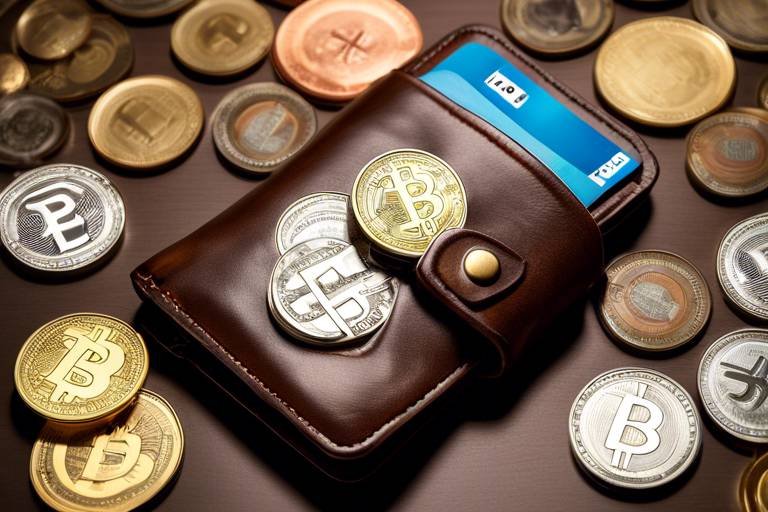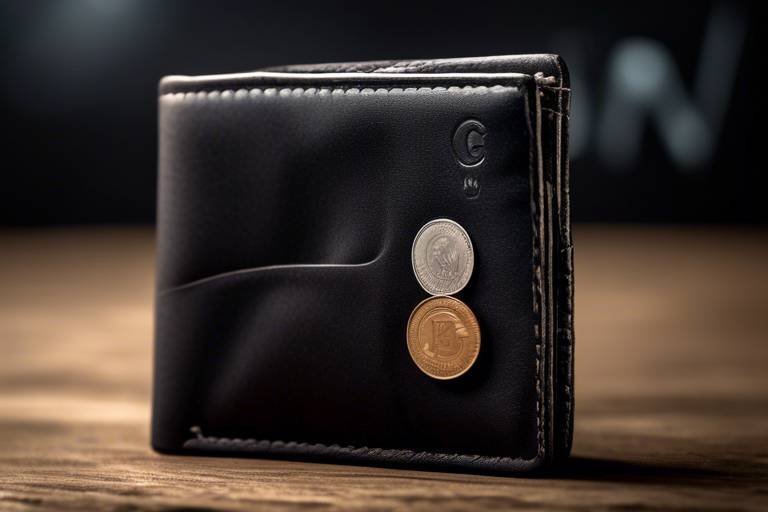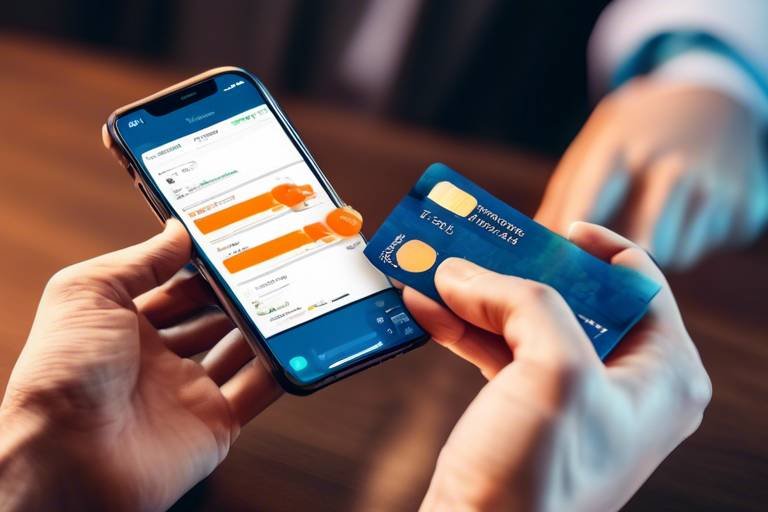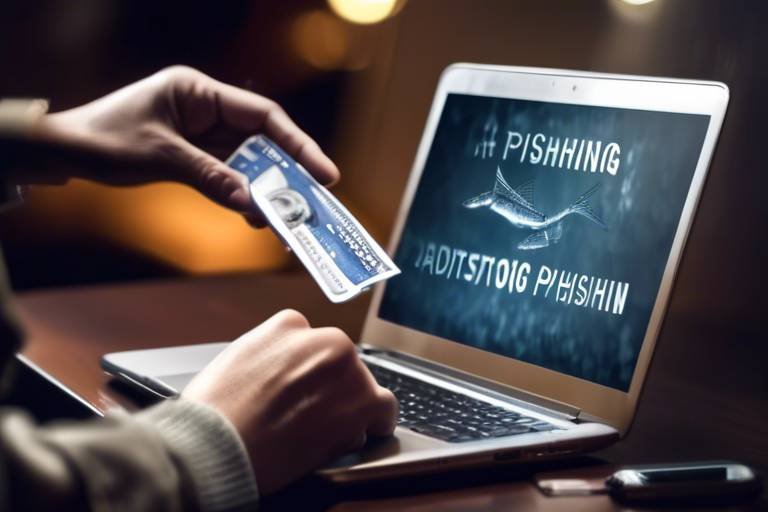How to Create a Secure Wallet for Your Business
In today’s fast-paced digital economy, establishing a secure wallet for your business is not just a good idea—it's a necessity. With the rise of online transactions and digital assets, ensuring the safety of your financial dealings has never been more critical. Imagine your digital wallet as a high-tech vault, safeguarding your treasures from the prying eyes of cybercriminals. But how do you build this vault? This article will guide you through essential steps and considerations for creating a secure wallet, ensuring that your business's financial transactions and digital assets remain safe and sound.
Digital wallets have become a cornerstone of modern business operations. They allow for seamless transactions, easy access to funds, and can even enhance customer experiences. But what exactly are digital wallets? Think of them as your online bank account, but with added functionalities that cater to the digital age. There are various types of digital wallets, each with its unique features and benefits. Let’s break them down:
- Web Wallets: Accessible via web browsers, these wallets are convenient but can be vulnerable to attacks.
- Mobile Wallets: Designed for smartphones, they offer on-the-go access but require strong security measures.
- Desktop Wallets: Installed on your computer, they provide more control but can be compromised if your device is hacked.
Understanding these options is the first step in choosing the right wallet for your business needs.
Selecting the appropriate wallet type is vital for your business's security. The three main categories of wallets are hot wallets, cold wallets, and hardware wallets. Each type has its own set of advantages and disadvantages, and understanding these can save you from potential pitfalls. Let’s explore these wallet types in more detail.
Hot wallets are connected to the internet, which makes them incredibly convenient for frequent transactions. Imagine being able to send or receive payments with just a few clicks! However, this convenience comes with a price. The constant online connection exposes hot wallets to various security risks. In a world where cyber threats are rampant, it's crucial to weigh the pros and cons carefully.
One of the most significant advantages of hot wallets is their speed and ease of use. For businesses that deal with high transaction volumes, having immediate access to funds can be a game-changer. Hot wallets allow you to:
- Quickly execute transactions
- Access funds anytime, anywhere
- Integrate easily with various payment platforms
Despite their many benefits, hot wallets have notable drawbacks. Their connection to the internet makes them more susceptible to hacking and phishing attacks. If you’re not vigilant, you could find yourself facing significant financial losses. It's essential to implement robust security measures if you decide to use a hot wallet.
Cold wallets, on the other hand, store your digital assets offline. This offline storage provides enhanced security against online threats, making cold wallets a popular choice for long-term asset storage. Think of cold wallets as your safe deposit box—secure and protected from the outside world. If your business holds substantial digital assets, a cold wallet might be the best option for you.
When creating a wallet, security should be your top priority. Implementing robust security measures is essential to protect your business's assets. Two-factor authentication (2FA) and encryption techniques are among the most effective strategies you can employ.
By incorporating two-factor authentication, you add an extra layer of security. This means that even if someone manages to get hold of your password, they’ll still need another verification method to access your wallet. It’s like having a double lock on your front door—one lock isn’t enough!
Encryption is another critical component of wallet security. It scrambles your sensitive information, making it unreadable to unauthorized users. There are various encryption techniques available, and selecting the right one can fortify your wallet against potential breaches.
Finally, conducting regular security audits is essential for maintaining your wallet's integrity. Think of it as a health check-up for your wallet. By identifying vulnerabilities in your wallet's setup, you can address issues before they become serious problems. Regular audits help ensure that your digital vault remains secure and reliable.
Q: What is the best type of wallet for a new business?
A: It depends on your transaction needs. Hot wallets are more convenient for frequent transactions, while cold wallets offer better security for long-term storage.
Q: How can I secure my hot wallet?
A: Implement strong passwords, enable two-factor authentication, and regularly monitor your wallet for suspicious activity.
Q: Are cold wallets completely safe?
A: While cold wallets are more secure than hot wallets, they are not entirely immune to risks. Always follow best practices for security.

Understanding Digital Wallets
In today's fast-paced digital world, digital wallets have become an essential tool for businesses striving to streamline their financial transactions. But what exactly is a digital wallet? Simply put, it's a virtual version of a physical wallet that allows you to store, send, and receive money electronically. Think of it as your business's digital cash register—always ready to make transactions while keeping your funds safe and accessible.
Digital wallets come in various forms, each tailored to meet different needs. They can be classified into three main categories: hot wallets, cold wallets, and hardware wallets. Understanding the differences between these types is crucial for any entrepreneur looking to protect their financial assets.
Hot wallets are typically connected to the internet, offering convenience and speed for frequent transactions. They're perfect for businesses that require quick access to funds, such as e-commerce platforms. However, their constant online presence makes them more susceptible to cyber threats. On the flip side, cold wallets store assets offline, providing a fortress-like security against online attacks. This makes them ideal for long-term asset storage, especially for businesses that don't need to access their funds regularly.
Hardware wallets, another type of digital wallet, combine the benefits of both hot and cold wallets. These physical devices store your digital assets offline while still allowing you to connect to the internet for transactions when necessary. They are often considered the gold standard for security, but they require a bit more technical know-how to operate.
In summary, understanding digital wallets is not just about knowing what they are; it’s about recognizing their critical role in the financial ecosystem of your business. As we navigate through various types of wallets, it’s essential to weigh the convenience of hot wallets against the security of cold and hardware wallets. This knowledge will empower you to make informed decisions that align with your business's needs and risk tolerance.
So, are you ready to dive deeper into the world of digital wallets? The next step is to choose the right wallet type that suits your business model and security requirements. Let's explore that further!
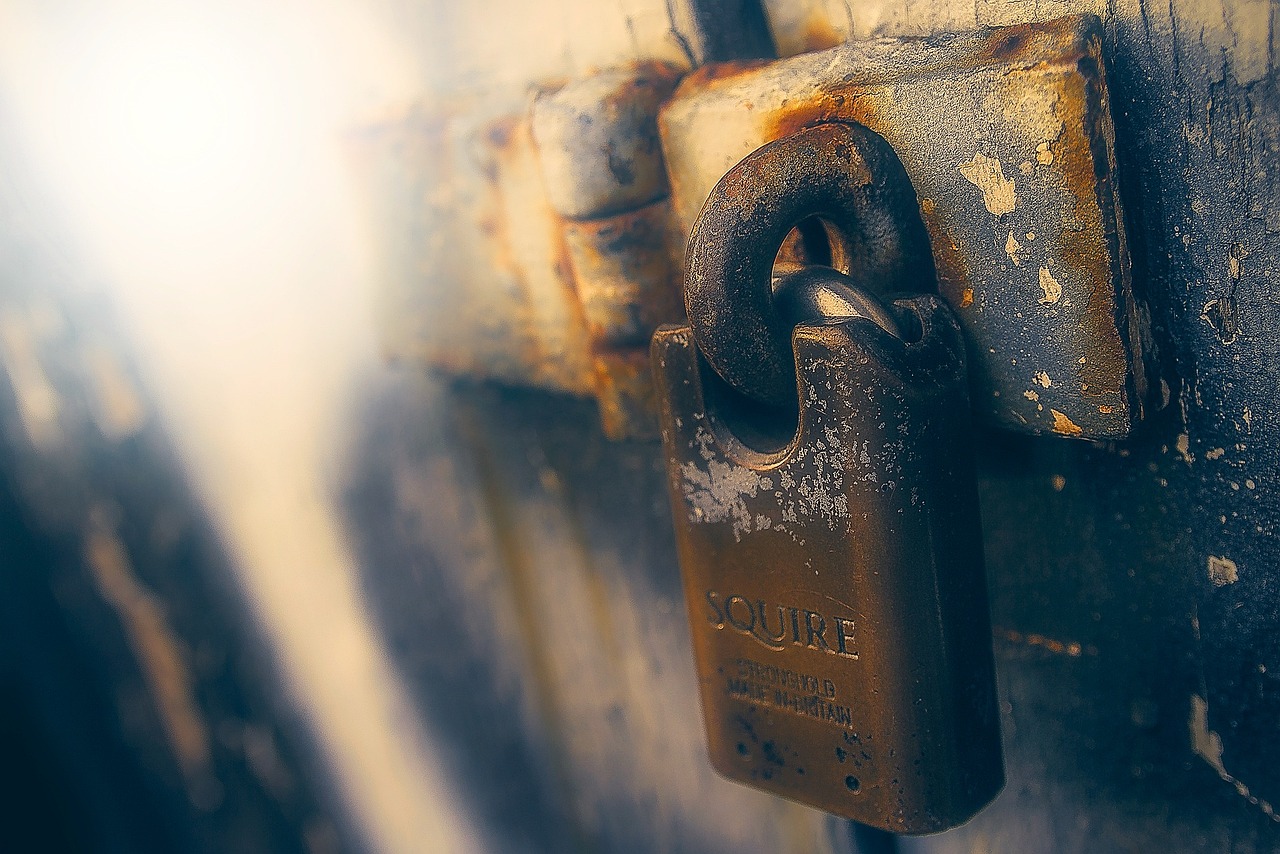
Choosing the Right Wallet Type
When it comes to securing your business's digital assets, choosing the right wallet type is absolutely crucial. With the increasing reliance on digital transactions, understanding the different types of wallets available can help you make informed decisions that enhance your financial security. There are primarily three types of digital wallets: hot wallets, cold wallets, and hardware wallets. Each type has its own set of features, advantages, and drawbacks, making it essential to evaluate them in the context of your business needs.
Hot wallets, as the name suggests, are always connected to the internet. They provide a level of convenience that is hard to beat, especially for businesses that engage in frequent transactions. Imagine being able to access your funds with just a few clicks—sounds appealing, right? However, this convenience comes at a cost. Hot wallets are more susceptible to cyber threats, including hacks and phishing attacks. Therefore, while they are perfect for day-to-day operations, they may not be the best choice for storing large amounts of digital currency.
On the other hand, cold wallets are designed for enhanced security. They operate offline, which means they are not exposed to the same vulnerabilities as hot wallets. If you think of cold wallets as a safety deposit box in a bank, you can see why they are favored for long-term asset storage. Businesses that plan to hold cryptocurrencies or other digital assets for extended periods would benefit from this type of wallet. However, the trade-off is that accessing your funds can be less convenient, requiring more steps to retrieve your assets.
Lastly, hardware wallets combine the best of both worlds. These physical devices store your digital assets offline while still allowing for relatively easy access when needed. They are like a portable vault that you can carry with you. Hardware wallets are generally considered one of the most secure options available, but they do come with a higher cost and require some technical knowledge to set up and use effectively.
In summary, the right wallet type for your business will depend on your specific needs, including how often you conduct transactions and how much you plan to store. It’s essential to weigh the pros and cons of each wallet type:
| Wallet Type | Advantages | Disadvantages |
|---|---|---|
| Hot Wallet | Quick access, user-friendly, ideal for frequent transactions | Higher risk of cyber attacks, less secure for large holdings |
| Cold Wallet | Highly secure, offline storage, ideal for long-term asset holding | Less convenient access, requires more steps to retrieve funds |
| Hardware Wallet | Secure offline storage, portable, good balance of convenience and security | Higher cost, requires technical knowledge for setup |
Ultimately, the decision should align with your business strategy and risk tolerance. By understanding the nuances of each wallet type, you can make a choice that not only protects your assets but also supports your operational efficiency.

Hot Wallets
Hot wallets are like the bustling cafés of the digital currency world—always open and ready for business. They are connected to the internet, making them incredibly convenient for businesses that require frequent transactions. Imagine you’re running a coffee shop that accepts cryptocurrency; you want a solution that allows you to quickly process payments without the hassle of waiting around. That’s where hot wallets come into play!
These wallets are designed for speed and accessibility, allowing users to send and receive funds in real-time. Whether you’re paying suppliers, making payroll, or handling customer transactions, hot wallets make it easy to manage your cash flow. However, while the convenience is undeniable, it’s essential to recognize that this constant connectivity comes with its own set of risks. Just like leaving the door of your café unlocked might invite unwanted guests, having a hot wallet exposes your business to potential cyber threats.
When considering the use of hot wallets, it’s important to weigh the advantages and disadvantages. On the plus side, hot wallets offer:
- Quick access to funds: You can make transactions almost instantly, which is crucial for businesses with high transaction volumes.
- User-friendly interfaces: Most hot wallets come with intuitive designs that make them easy to navigate, even for those who are not tech-savvy.
- Support for multiple currencies: Many hot wallets allow you to manage various cryptocurrencies in one place, simplifying your financial management.
However, it’s vital to also consider the disadvantages:
- Increased vulnerability: Being online means that hot wallets are more susceptible to hacking and phishing attacks.
- Less control: Many hot wallets are hosted by third-party services, which means you may not have complete control over your private keys.
- Potential for loss: If your wallet provider suffers a security breach, you could lose access to your funds without any recourse.
In conclusion, while hot wallets offer unparalleled convenience for businesses that need to conduct frequent transactions, they come with significant security risks. If you decide to go this route, it’s crucial to implement robust security measures, such as two-factor authentication and regular monitoring of your wallet activity, to mitigate these risks. Just like you wouldn’t leave your café unattended during peak hours, you shouldn’t leave your hot wallet unprotected in the digital space.
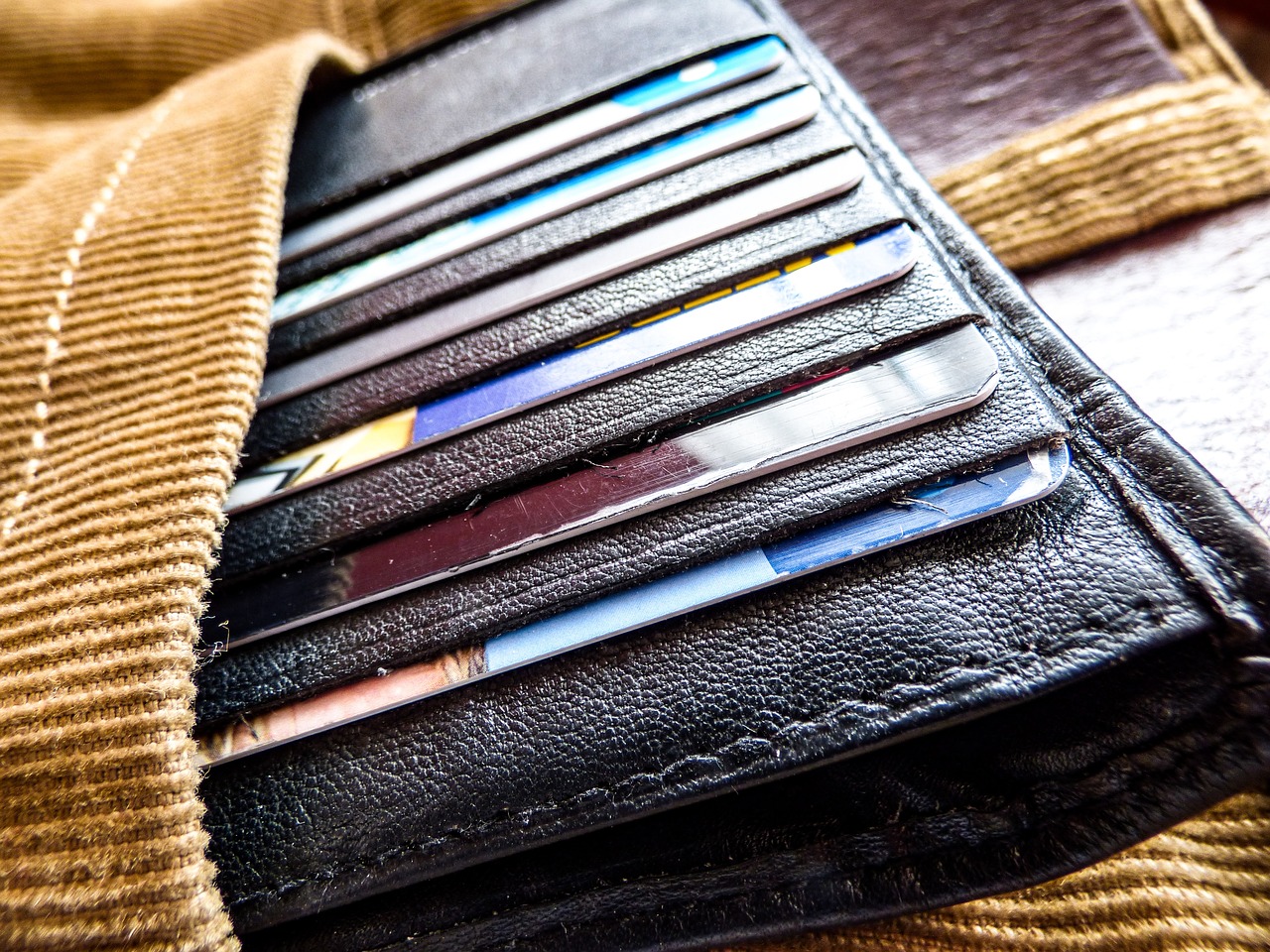
Advantages of Hot Wallets
Hot wallets have become increasingly popular among businesses due to their convenience and ease of use. Imagine being able to access your funds with just a few clicks, whether you’re making a quick payment or engaging in a high-volume transaction. This is precisely what hot wallets offer. They are connected to the internet, which means that you can send and receive digital currencies almost instantaneously. This feature is particularly beneficial for businesses that require fast transactions to maintain their operations smoothly.
Another significant advantage of hot wallets is their user-friendly interfaces. Most hot wallets are designed with the average user in mind, making them accessible even for those who may not be tech-savvy. This ease of use can be a game changer for small business owners who want to manage their finances without getting bogged down in complex technology. Additionally, many hot wallets come equipped with mobile applications, allowing business owners to manage their assets on the go. This flexibility can be particularly useful for entrepreneurs who are constantly on the move.
Furthermore, hot wallets often support a wide variety of cryptocurrencies, which can be a huge advantage for businesses dealing with multiple digital currencies. This versatility allows businesses to diversify their portfolios and take advantage of market fluctuations without needing to switch between different wallets. In a world where digital currencies are becoming increasingly mainstream, having a hot wallet that supports numerous coins can provide a competitive edge.
However, it’s important to remember that while hot wallets offer numerous benefits, they also come with certain risks. To mitigate these risks, businesses should implement robust security measures, such as strong passwords and two-factor authentication. By doing so, they can enjoy the advantages of hot wallets while minimizing potential vulnerabilities.
In summary, the advantages of hot wallets make them an attractive option for businesses looking to streamline their financial transactions. Their convenience, user-friendly design, and support for multiple cryptocurrencies can significantly enhance operational efficiency. Nevertheless, it is crucial to remain vigilant about security to protect your valuable digital assets.
- What is a hot wallet? A hot wallet is a digital wallet that is connected to the internet, allowing for quick and easy access to cryptocurrencies.
- Are hot wallets safe? While hot wallets are convenient, they are more vulnerable to cyber threats. Implementing strong security measures can help protect your assets.
- Can I use a hot wallet for long-term storage? Hot wallets are primarily designed for active transactions. For long-term storage, cold wallets are generally recommended.
- What security measures should I take with a hot wallet? Use strong passwords, enable two-factor authentication, and regularly monitor your wallet for any suspicious activity.

Disadvantages of Hot Wallets
While hot wallets are undeniably convenient for businesses that require quick access to funds, they come with significant drawbacks that can jeopardize the security of your digital assets. One of the primary concerns is their vulnerability to cyber attacks. Since hot wallets are connected to the internet, they are prime targets for hackers who are constantly on the lookout for weaknesses to exploit. Imagine leaving your front door wide open in a neighborhood known for theft; that's essentially what using a hot wallet without proper precautions is like.
Additionally, hot wallets often lack the robust security features that cold wallets provide. For instance, they may not offer advanced encryption or multi-signature capabilities, which can leave your assets exposed to unauthorized access. This can be particularly alarming if your business holds a substantial amount of cryptocurrency or digital assets. If a hacker gains access, the losses can be catastrophic, potentially crippling your business.
Another disadvantage is the dependency on third-party services. Many hot wallets are provided by external companies, which means you are relying on their security measures to protect your funds. If the service provider suffers a breach or goes offline due to technical issues, your access to your assets could be compromised. This lack of control can be unsettling for business owners who prefer to manage their own security protocols.
Moreover, the ease of use that hot wallets provide can sometimes lead to careless practices. When transactions are just a click away, it can be tempting to overlook basic security measures, such as using strong passwords or enabling two-factor authentication. This complacency can open the door to potential threats, making it crucial for businesses to remain vigilant.
In summary, while hot wallets offer a level of convenience that is hard to ignore, the risks associated with them cannot be understated. Businesses must weigh the benefits against the potential downsides, ensuring that they have a comprehensive security strategy in place to mitigate these risks. As the saying goes, “better safe than sorry,” and when it comes to your business’s financial assets, this couldn’t be more true.
- What is a hot wallet? A hot wallet is a digital wallet that is connected to the internet, allowing for quick access and easy transactions.
- Are hot wallets safe to use? While they offer convenience, hot wallets are more vulnerable to cyber threats compared to cold wallets. Proper security measures are essential.
- What can I do to secure my hot wallet? Implement two-factor authentication, use strong passwords, and regularly update your security protocols to enhance protection.
- Should I use a hot wallet for long-term storage? It is generally not recommended to use hot wallets for long-term storage due to their vulnerabilities. Cold wallets are a safer alternative for that purpose.
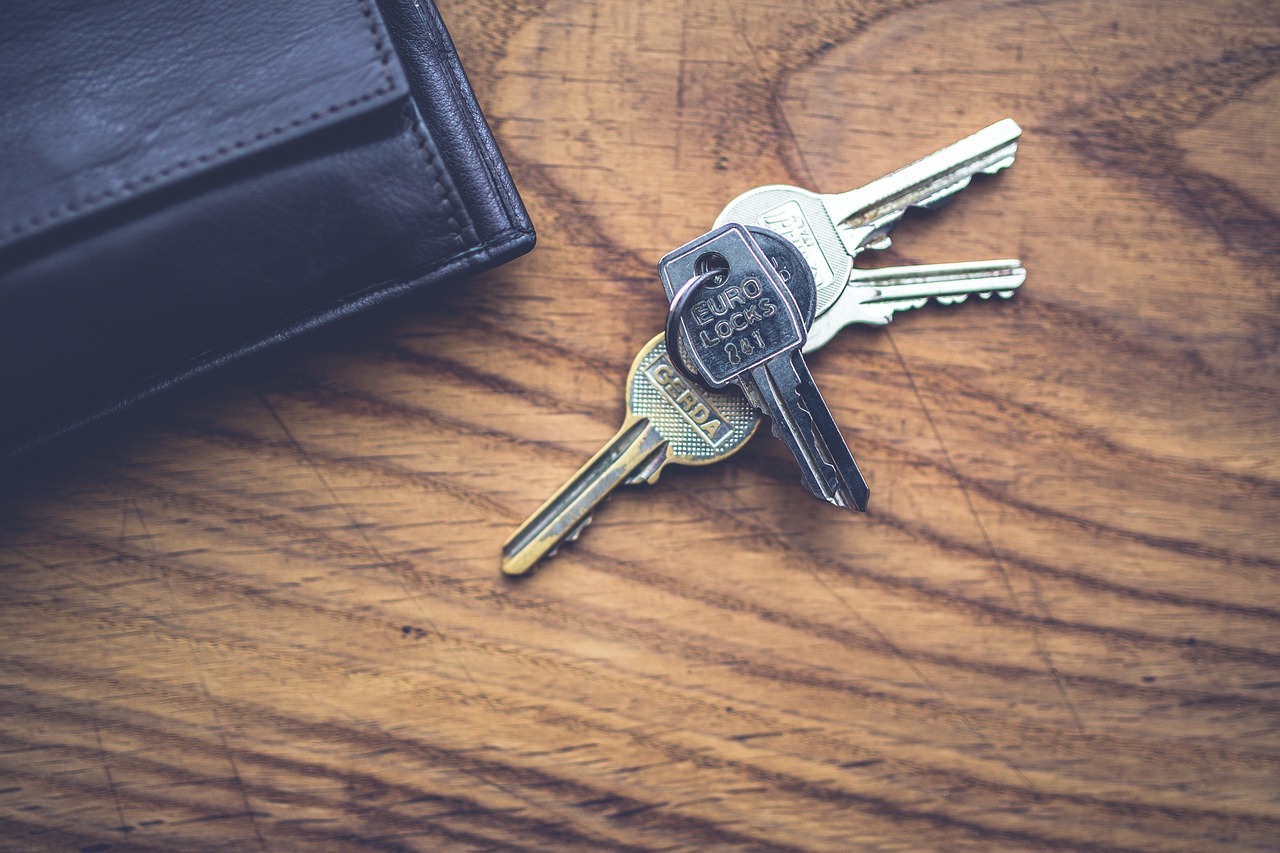
Cold Wallets
When it comes to safeguarding your business's digital assets, are often regarded as the fortress of the cryptocurrency world. Unlike their hot counterparts, cold wallets store your assets offline, significantly reducing the risk of online threats. Imagine having a safe deposit box in a bank, where your valuables are kept away from prying eyes and potential thieves. That’s the essence of a cold wallet—it’s designed for security, especially for long-term storage of cryptocurrencies.
Cold wallets come in various forms, including hardware wallets and paper wallets. Hardware wallets are physical devices that securely store your private keys offline. They are often equipped with additional security features, such as PIN codes and recovery phrases, making it incredibly difficult for unauthorized users to access your funds. On the other hand, paper wallets involve printing your private keys on a piece of paper, which you then store in a safe place. While this method is simple and cost-effective, it requires careful handling to prevent loss or damage.
One of the biggest advantages of cold wallets is their immunity to online hacking attempts. Since they are not connected to the internet, the risk of cyber attacks is drastically minimized. This makes them an ideal choice for businesses that hold significant amounts of cryptocurrency or those that plan to invest for the long haul. However, it's essential to note that while cold wallets offer enhanced security, they are not without their challenges. For instance, accessing your funds can be less convenient compared to hot wallets, particularly for businesses that require quick transactions.
Moreover, if you misplace your hardware wallet or lose your paper wallet, retrieving your assets can become a daunting task. Therefore, it's crucial to implement a robust backup strategy. Here are some tips for effectively managing your cold wallets:
- Keep multiple backups: Store copies of your recovery phrases in different secure locations.
- Regularly update your security measures: Ensure that your hardware wallet firmware is up to date to protect against vulnerabilities.
- Educate your team: Make sure everyone involved in managing the wallet understands the importance of security and the proper handling of cold wallets.
In summary, cold wallets are an essential component of a comprehensive security strategy for any business dealing with cryptocurrencies. They provide a robust layer of protection against online threats, making them ideal for long-term asset storage. However, businesses must weigh the pros and cons and consider their specific needs when deciding on a wallet strategy. By choosing wisely and implementing best practices, you can ensure that your digital assets remain safe and secure.
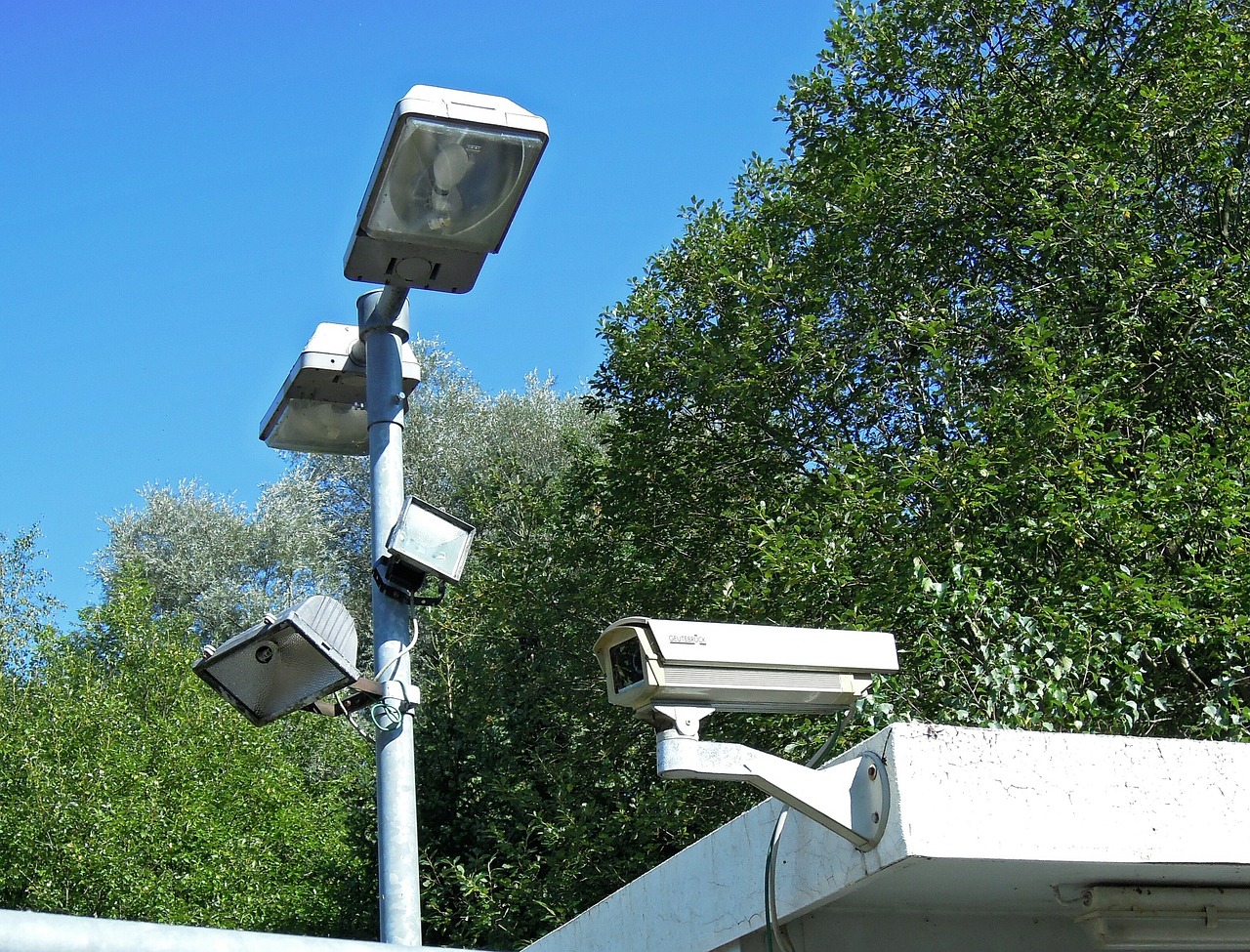
Implementing Security Measures
When it comes to protecting your business's digital wallet, implementing robust security measures is not just a good idea; it's a necessity. In today's digital landscape, threats are constantly evolving, and the stakes are higher than ever. Imagine your digital wallet as a treasure chest filled with valuable assets—would you leave it unlocked in a public space? Of course not! The same principle applies to your digital wallet. You need to take proactive steps to ensure that your assets are secure from prying eyes and malicious attacks.
One of the most effective ways to bolster your wallet's security is through two-factor authentication (2FA). This method adds an extra layer of protection by requiring users to provide two forms of identification before accessing the wallet. Think of it as a double lock on your treasure chest; even if someone manages to find the key, they still can't get in without the second form of verification. This could be a code sent to your mobile device or an authentication app, making it significantly harder for unauthorized users to gain access.
Another critical aspect of wallet security is encryption. Encryption acts like a secret language that only you and your intended recipients can understand. By encrypting sensitive information, even if cybercriminals manage to intercept your data, it will appear as gibberish to them. There are various encryption techniques available, such as AES (Advanced Encryption Standard) and RSA (Rivest–Shamir–Adleman), which are widely regarded for their effectiveness. Implementing these techniques can ensure that your wallet remains secure from unauthorized access.
In addition to these measures, consider regularly updating your software and security protocols. Just as you wouldn't wear the same old armor in battle, your security measures should evolve to counter new threats. Regular updates can patch vulnerabilities and enhance the overall security of your wallet. You might also want to educate your team about phishing attacks and other common tactics used by cybercriminals. Knowledge is power, and the more informed your team is, the less likely they are to fall victim to scams.
To summarize, implementing security measures for your digital wallet should involve:
- Two-Factor Authentication to add an extra layer of security.
- Strong encryption techniques to protect sensitive data.
- Regular software updates to stay ahead of potential threats.
- Team education to recognize and avoid phishing attempts.
By taking these steps, you're not just securing your digital wallet; you're also safeguarding the future of your business. Remember, in the world of digital finance, the best defense is a good offense. So, equip your wallet with the necessary tools and knowledge to navigate the digital economy safely!
Q: What is two-factor authentication, and why is it important?
A: Two-factor authentication (2FA) is a security measure that requires two forms of identification to access your wallet. It is important because it adds an extra layer of protection, making it harder for unauthorized users to gain access, even if they have your password.
Q: How does encryption work to protect my wallet?
A: Encryption converts your sensitive data into a coded format that can only be read by those with the decryption key. This means that even if someone intercepts your data, they won't be able to understand it without the key.
Q: How often should I update my wallet's security measures?
A: It's advisable to regularly update your wallet's security measures, ideally whenever updates are available. This helps to patch vulnerabilities and protect against new threats.
Q: What should I do if I suspect my wallet has been compromised?
A: If you suspect your wallet has been compromised, immediately change your passwords, enable two-factor authentication, and contact your wallet provider for further assistance. It's also wise to monitor your accounts for any unauthorized transactions.

Two-Factor Authentication
When it comes to securing your digital wallet, two-factor authentication (2FA) is like adding a robust lock to your front door. It’s not just about having a strong password; it’s about ensuring that even if someone gets hold of your password, they still can’t waltz right in. 2FA requires users to provide two different types of information to verify their identity, which significantly enhances security.
Imagine you’re trying to access your wallet. After entering your password, you’re prompted to enter a code sent to your mobile device. This is the second factor. It’s like needing both a key and a fingerprint to unlock a safe. By implementing 2FA, you create a barrier that makes it much harder for unauthorized users to gain access.
There are several methods for implementing two-factor authentication, and each has its own level of security and convenience. Here are a few popular options:
- SMS Codes: A code is sent to your mobile phone via SMS. While convenient, this method can be vulnerable to SIM swapping.
- Authenticator Apps: Apps like Google Authenticator or Authy generate time-sensitive codes that enhance security. They don’t rely on SMS and are generally more secure.
- Email Verification: A code sent to your registered email. This method is better than SMS but still less secure than authenticator apps.
Choosing the right method for 2FA is crucial. For businesses handling significant transactions, using an authenticator app is often recommended due to its higher security level. It’s like opting for a high-tech security system over a simple lock. Additionally, educating your team about the importance of 2FA can prevent security breaches caused by human error.
In conclusion, implementing two-factor authentication is a non-negotiable step in securing your business's digital wallet. It acts as a safety net that can protect your financial assets from cybercriminals. Remember, in the digital world, it’s always better to be safe than sorry!
- What is two-factor authentication? Two-factor authentication is a security process that requires two different forms of identification to access an account.
- Why should I use two-factor authentication? It adds an extra layer of security, making it much harder for unauthorized users to gain access to your account.
- Can I use two-factor authentication for my business wallet? Yes, most digital wallets support two-factor authentication as a security measure.
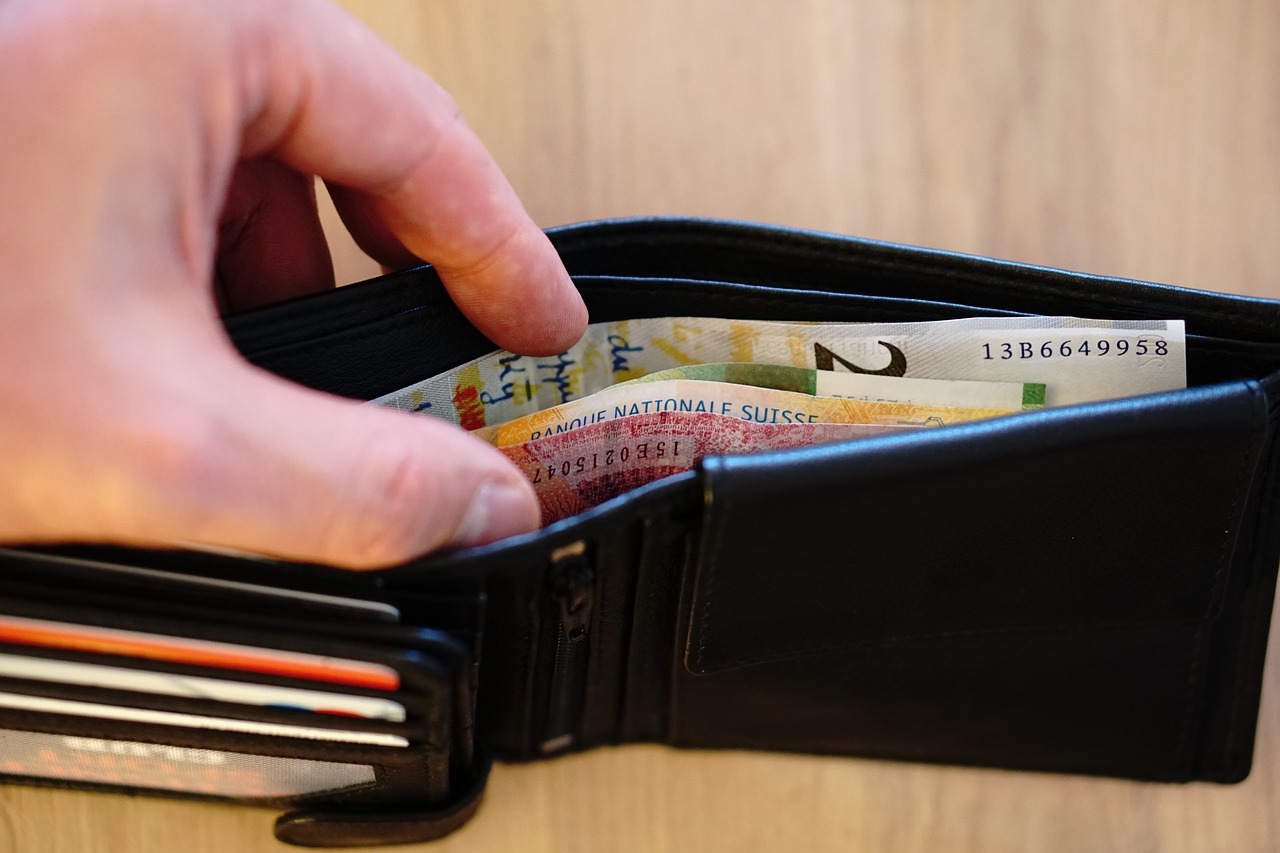
Encryption Techniques
When it comes to safeguarding your business's digital assets, are your best friends. Think of encryption as a digital lock that only you and your authorized users can open. It transforms your sensitive information into a coded format, making it unreadable to anyone who doesn't have the key. This is especially crucial in today's world, where cyber threats lurk around every corner, waiting to pounce on unprotected data.
There are several encryption methods available, each with its own strengths and weaknesses. Understanding these can help you choose the right one for your business needs. Here are some of the most common techniques:
- Symmetric Encryption: This method uses a single key for both encryption and decryption. While it's fast and efficient, the challenge lies in securely sharing the key with authorized users.
- Asymmetric Encryption: Also known as public key encryption, this method uses a pair of keys: a public key for encryption and a private key for decryption. This adds an extra layer of security, as the private key never leaves the owner's device.
- Hashing: Unlike the previous two methods, hashing converts information into a fixed-size string of characters, which cannot be reversed. This is particularly useful for storing passwords securely.
Implementing these encryption techniques in your digital wallet can significantly enhance its security. For example, by using asymmetric encryption, you can ensure that even if someone intercepts the data, they won't be able to decrypt it without the private key. This is like sending a locked box through the mail, where only the intended recipient has the key to unlock it.
Moreover, combining encryption with other security measures, such as two-factor authentication, creates a robust defense against unauthorized access. Imagine trying to break into a vault that not only has a strong lock but also requires a secret code sent to your phone. This layered approach makes it exponentially harder for hackers to breach your security.
In addition, it's essential to stay updated on the latest encryption standards and practices. The world of cybersecurity is constantly evolving, and what was considered secure yesterday might not be enough today. Regularly reviewing and updating your encryption methods is akin to regularly changing the locks on your doors to keep intruders at bay.
In conclusion, investing in strong encryption techniques is non-negotiable for any business looking to protect its digital wallet. By understanding and implementing these methods, you can create a secure environment for your financial transactions and digital assets. Remember, the security of your business's future depends on the steps you take today.
- What is encryption? Encryption is the process of converting information into a coded format to prevent unauthorized access.
- Why is encryption important for digital wallets? It protects sensitive information, ensuring that only authorized users can access it.
- What are the different types of encryption? The main types include symmetric encryption, asymmetric encryption, and hashing.
- How often should I update my encryption methods? Regular updates are recommended to keep up with evolving cybersecurity threats.
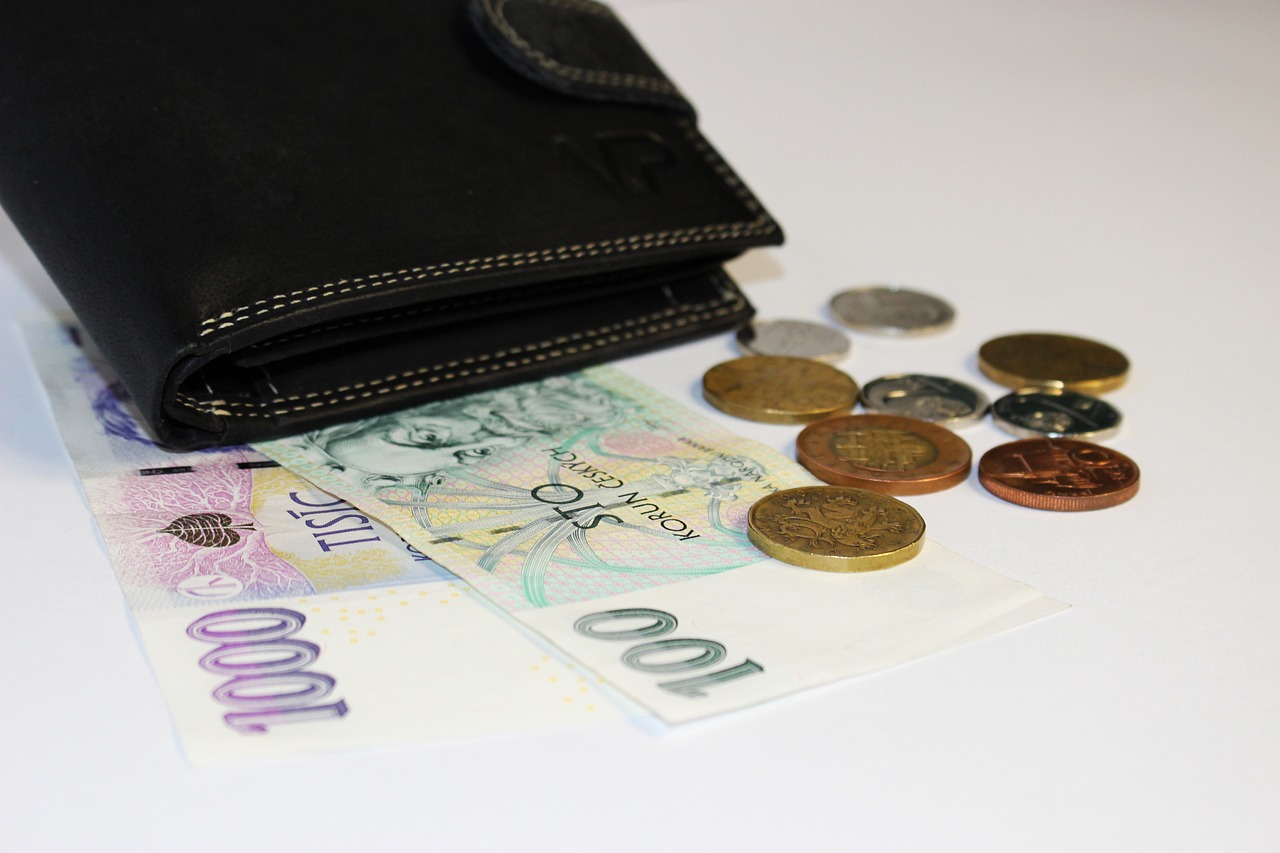
Regular Security Audits
In the fast-paced world of digital transactions, are not just a good practice; they are essential for safeguarding your business's financial assets. Think of these audits as a health check-up for your digital wallet. Just like you wouldn’t skip your annual physical, you shouldn’t overlook the importance of assessing your wallet's security. By conducting these audits, you can identify vulnerabilities that might expose your business to cyber threats.
So, how do you go about performing a security audit? It may sound daunting, but it can be broken down into manageable steps. First, you should evaluate your current security measures. Are they up to date? Are they effective against the latest threats? Next, you can assess your wallet’s transaction history for any suspicious activities. Keeping an eye on your transaction logs is like watching for red flags in your finances; it helps you catch potential issues early.
Moreover, it’s crucial to involve your team in the audit process. Create a culture of security awareness where everyone understands their role in protecting sensitive information. You might consider holding regular training sessions to keep your team informed about the latest security threats and best practices. This not only empowers your employees but also builds a strong defense against potential breaches.
After completing the audit, it’s important to document your findings and action items. This documentation serves as a roadmap for improving your security measures. Here’s a simple table to illustrate the process:
| Audit Step | Description | Frequency |
|---|---|---|
| Evaluate Security Measures | Review the effectiveness of your current security protocols. | Quarterly |
| Check Transaction History | Look for any anomalies or unauthorized transactions. | Monthly |
| Team Training | Conduct sessions to keep staff updated on security practices. | Bi-annual |
| Documentation | Record findings and update security protocols accordingly. | After each audit |
By adhering to a regular audit schedule, you can significantly enhance your wallet's security. It’s all about being proactive rather than reactive. The digital landscape is constantly evolving, and so are the tactics of cybercriminals. Keeping your security measures current ensures that you’re not just playing catch-up but are a step ahead of potential threats.
In conclusion, regular security audits are a critical component of maintaining a secure wallet for your business. They help you identify weaknesses, reinforce your defenses, and foster a culture of security awareness among your team. It’s not just about protecting your digital assets; it’s about ensuring the longevity and reputation of your business in an increasingly digital economy.
- How often should I conduct a security audit? Ideally, audits should be performed quarterly, but specific aspects like transaction history should be checked monthly.
- What should I do if I find a vulnerability? Document the issue immediately and take steps to mitigate the risk, such as updating security protocols or training staff.
- Can I perform a security audit myself? While you can conduct basic audits, it’s advisable to consult with cybersecurity professionals for a comprehensive assessment.
Frequently Asked Questions
- What is a digital wallet?
A digital wallet is a secure online application that allows businesses to store and manage their financial transactions and digital assets. It enables quick access to funds and facilitates various payment methods, making it essential for modern businesses.
- What are the different types of digital wallets?
There are three main types of digital wallets: hot wallets, cold wallets, and hardware wallets. Hot wallets are connected to the internet and offer convenience for frequent transactions. Cold wallets store assets offline, providing enhanced security. Hardware wallets are physical devices that securely store digital assets and are considered one of the safest options.
- Why should I choose a cold wallet for my business?
Choosing a cold wallet is ideal for businesses that prioritize security. Since cold wallets store assets offline, they are less vulnerable to cyber threats and hacking attempts, making them suitable for long-term asset storage.
- How can I enhance the security of my digital wallet?
To enhance wallet security, implement two-factor authentication, which requires users to verify their identity through multiple methods. Additionally, utilize strong encryption techniques to protect sensitive information and regularly update your security measures.
- What is two-factor authentication and why is it important?
Two-factor authentication (2FA) is a security process that requires two forms of verification before granting access to your wallet. It significantly reduces the risk of unauthorized access, as even if someone obtains your password, they would still need the second factor to access your account.
- How often should I conduct security audits on my wallet?
Regular security audits should be conducted at least once every few months or whenever there are significant changes in your wallet setup. This helps identify vulnerabilities and ensures that your security measures are up to date.
- What are the risks associated with using hot wallets?
Hot wallets, while convenient for frequent transactions, are more susceptible to cyber threats such as hacking and phishing attacks. If not properly secured, they can lead to significant financial losses for your business.
- Can I use multiple types of wallets for my business?
Absolutely! Many businesses use a combination of hot and cold wallets to balance convenience and security. For example, a hot wallet can be used for daily transactions, while a cold wallet can securely store larger assets for the long term.


